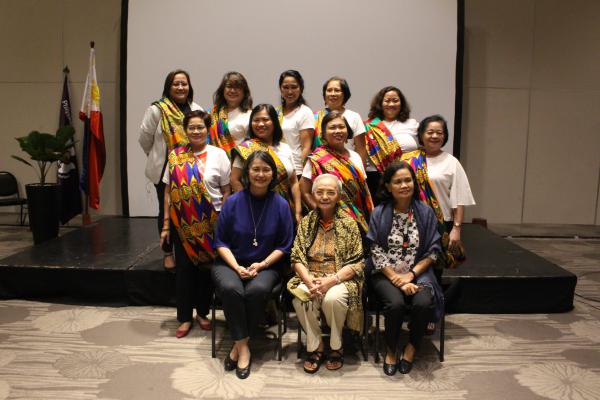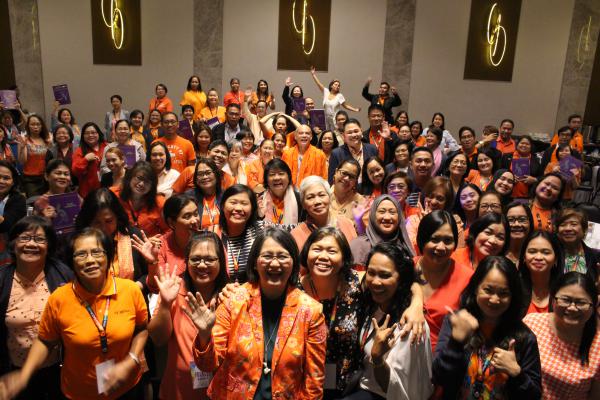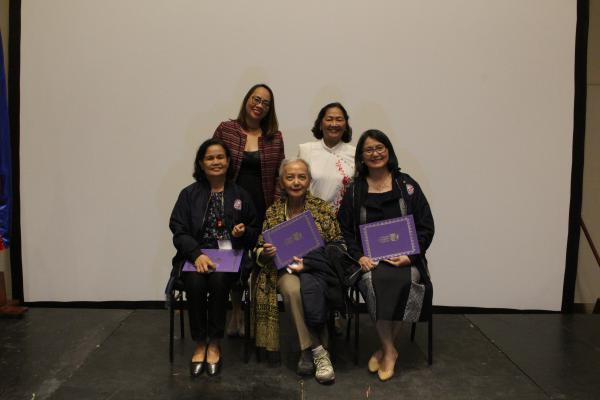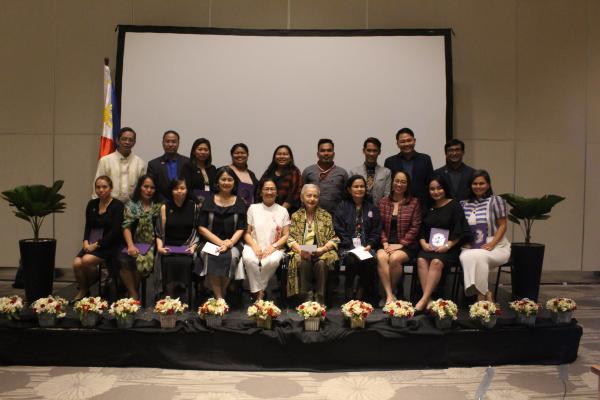Quality technical GAD assistance pushed during the 4th GAD Resource Pool Assembly
“Focus on providing quality technical assistance (TA) on Gender and Development (GAD) and not on the quantity of TA requests.”
This is what the Philippine Commission on Women (PCW) reiterated to its certified GAD Resource Pool (GR Pool) members during the 4th GR Pool Assembly held on July 23 to 25, 2019 at the Hotel Lucky Chinatown in Manila.
In her opening remarks, Chairperson Rhodora M. Bucoy reminded the GRPool members of their vital role in helping the PCW and various government agencies address persistent gender issues such as low participation in the labor force, lack of representation opportunities and social protection for women, gender disparity in land ownership reflects women’s disadvantaged position, rising and pervasive sexism and violence against women, cyber-pornography, gender-based violence with high-level impunity, and low women’s political participation, among others.
“We will focus on increasing the capacity of GR Pool members on the GAD Agenda formulation, a priority directive of PCW for government agencies to set and monitor their respective GAD initiatives towards the achievement of their gender equality and women’s empowerment goals,” Bucoy said.
During the three-day event, 116 NGRP members were capacitated in providing TA on the formulation of GAD Agenda and using Gender Analysis Tools such as the Harmonized Gender and Development Guidelines (HGDG) and the revised Gender-Responsive Local Government Unit (GeRL) Assessment Tool. The full instructional video of the GeRL Assessment Tool was also launched during the assembly.
Newly-certified members
Fifteen GAD practitioners from various parts of the country were certified during the GR Pool Assembly and have joined the roster of the GRPool.
Among the newly-certified GR Pool members from various national government agencies are Mac Paul V. Alariao of the Department of Social Welfare and Development (DSWD)– Region 2, Maria Christine M. De Leon of the Department of the Interior and Local Government – Region 3, Maria May-I L. Fabros of the Department of Foreign Affairs, Donald James D. Gawe of the National Economic Development Authority – Region 1, and Philip Amiel B. Lopez of DSWD-Region 4-A.
The following members of the academe were also certified as part of the GRPool Batch 7: Eleanor R. Belizar of the University of Northern Philippines, Flordeliza G. Cruz of the Mountain Province State College, Jenny Lind D. Elmaco Cardenas of Siliman University, Remegio R. Musca of Bulacan State University, Frederick P. Pablico of the Institute of Women’s Studies- St. Scholastica’s College, Atty. Eric Paul D. Peralta of UP Los Baños, and Jansen A. San Juan of the University of Rizal System.
Also certified as GR Pool members are Janice Pinky Moreno of Davao City – Integrated Gender and Development Division, independent GAD Consultant Miriam Buergo and Samahan ng mga Pilipinas para sa Reporma at Kaunlaran (SPARK!) Project Officer Kassandra Danielle T. Barnes.
“I believe that it is a huge responsibility as a gender advocate to mainstream gender issues into our government systems, and more than that, our societal structures. I am looking forward to growing with my fellow GAD practitioners and learning more towards gender-responsive governance, and gender equality for the country,” said Barnes.
Lifetime honorary membership
In recognition of their notable contributions to PCW and GAD Mainstreaming, three former officials of the commission were named as honorary members of the GRPool.
The GR Pool Founding Mothers, former PCW Chairperson Remedios I. Rikken, former PCW Executive Director Emmeline L. Verzosa, and former PCW Deputy Executive Director Manuela M. Silva were conferred with lifetime honorary GR Pool membership which symbolizes their earlier efforts and continued support to GAD mainstreaming even after retiring from government service.
All three committed to continue pushing for the advancement of women and girls and achieving gender equality, even in their personal capacity as private citizens.
Array




